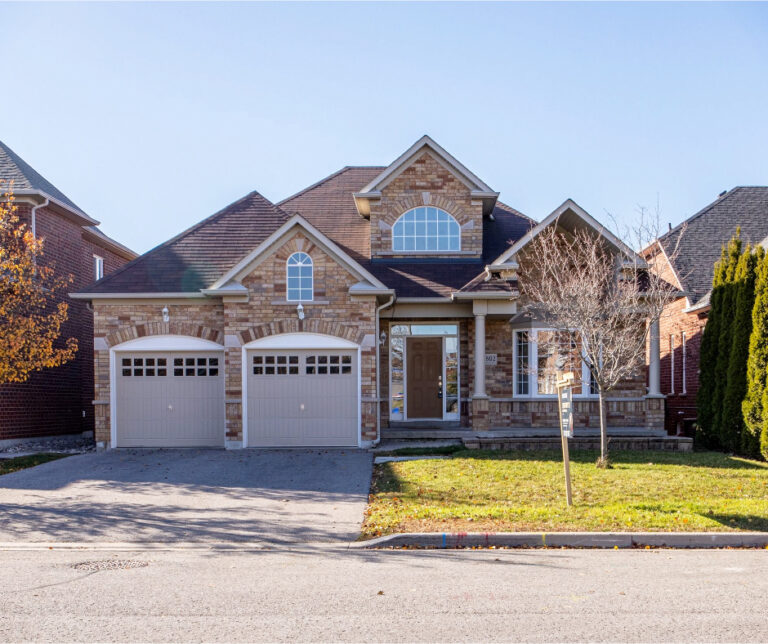Conventional Versus FHA Home Loans Mortgage Guidelines

This Article Covers Conventional Versus FHA Home Loans Mortgage Guidelines
In this article, we will cover the following:
- Basics on FHA home loans
- Conventional versus FHA loan guidelines on non-occupant co-borrowers
- Which loan program is best for borrowers with high outstanding student loans
- Which loan program is better for borrowers with bad credit
- Using seller concessions to cover closing costs
- Mortgage insurance on conventional versus FHA loans
- Credit score requirements and rates
- Cases where you need to go with a conventional versus an FHA loan
- Using gift funds for the down payment and closing costs
- Buying a 2 to 4 unit multi-family home with an FHA versus a conventional loan
Basics on FHA Home Loans
The Federal Housing Administration (FHA) guarantees residential mortgage loans to HUD Approved lenders. FHA and Conventional Loans are the most popular mortgage loan programs in the United States. In this blog, we are going to compare Conventional versus FHA Home Loans.
HUD partially insures lenders in the event FHA borrowers default.
HUD mortgage guidelines are much easier than conventional guidelines. There are much more advantages with FHA loan programs than there are with conventional loan programs for borrowers with bad credit and higher debt to income ratios.
However, there are cases where borrowers need to go with conventional versus FHA home loans
FHA Lending Guidelines
HUD, the parent of The Federal Housing Administration created the FHA loan program to make homeownership possible for all hard-working Americans.
FHA is extremely popular for first-time home buyers and seasoned home buyers. FHA programs are the mortgage choice for those seeking a home loan with bad credit. A first-time homebuyer with bad credit can qualify for an FHA loan with a credit score as low as 500.
For homebuyers who need a home loan with bad credit can qualify for an FHA loan. HUD allows borrowers with credit scores between 500 and 579 credit scores. However, borrowers who have under 580 credit scores need a 10% down payment.
Borrowers can qualify for a 3.5% down payment home purchase FHA loan with at least a 580 credit score.
Homebuyers who need a home loan with bad credit, an FHA loan is the perfect program.
Why FHA Loans are so Popular
Here are some other advantages for first time home buyers and home buyers in getting an FHA loan:
The minimum credit score to qualify for an FHA loan is 500 FICO:
FHA loans are ideal for borrowers who need a home loan with bad credit. Borrowers with credit scores down to 500 FICO can qualify. If the borrower’s scores fall between 500 and 579, HUD requires a 10% down payment on a home purchase.
Borrowers with under 580, debt to ratio caps is 31% front end debt to income ratio and 43% back end debt to income ratio to get (AUS).
To qualify for a 3.5% down payment FHA loan, Credit scores need to be 580 minimum.
Debt to Income Ratio on FHA Loans
For those with credit scores of under 620 the debt to income ratio caps are the following:
- 31% front end debt to income ratio
- 43% back end debt to income ratio
For those whose credit scores are 620 or higher, the front-end debt to income ratio cap boosts to 46.9%. The back-end debt to income ratio is 56.9% to get AUS Approval.
- Non-occupant co-borrowers are allowed on FHA loans
- The borrower does not provide any income as long as they have non-occupant co-borrower
Non-Occupant Co-Borrowers On Conventional Versus FHA Home Loans
To qualify for a 3.5% down payment FHA Loans with non-occupant co-borrowers, non-occupant co-borrowers need to be related to borrowers by law, marriage, or blood. If not related by law, blood, marriage, then the home buyer needs to put a 25% down payment on FHA Loans.
The non-occupant co-borrower needs to be a family member or a member that is related to the borrower by blood, marriage, or law:
- 100% of the down payment funds can be gifted
A gift letter certifying that the gift funds are not a loan. The borrower and donor need to certify it is a 100% gift. Both need to certify the gift will not be paid back needs to be signed by both parties.
With FHA loans, all gift funds need to be sourced. The funds leaving the donor’s account into the recipient account need to be sourced by providing bank account information by both the donor and recipient.
Normally, mortgage lenders want to see a 30-day seasoning of the gift funds from the donor’s bank statement. This is only on FHA loans.
In conventional loans, the only thing required from the borrower on gift funds is a copy of the check of the donor and deposit transaction.
Conventional Loans do not require non-occupant co-borrowers to be related to the main borrower by blood, marriage, law. Friends, relatives, and others can be non-occupant co-borrowers.
Conventional Versus FHA Home Loans With Bad Credit

Buyers seeking a home loan with bad credit and have a prior bankruptcy, foreclosure, deed in lieu of foreclosure, a short sale can qualify for an FHA loan after meeting waiting period mortgage lending guidelines.
Mortgage borrowers with a prior Chapter 7 bankruptcy, home buyer needs to meet two years waiting period after the discharged date to qualify for FHA Loans.
If a homeowner had a prior foreclosure and deed in lieu of foreclosure, the home buyer needs to wait three years from the sheriff’s sale or the recorded date of the foreclosure to qualify for FHA.
For a short sale, the home buyer needs to wait three years from the date of the short sale which is reflected in the HUD’s Settlement Statement to qualify for FHA. Re-established credit and no late payments after the period of the derogatory period has lapsed is mandatory.
Outstanding Collections And Charged Off Accounts
All loan programs do not require outstanding collections and charged-off accounts to be paid to qualify. However, FHA has the most lenient standards when it comes to getting an approve/eligible per AUS on outstanding collections/charged-off accounts.
Open collections and unsatisfied derogatory credit are allowed per HUD mortgage lending guidelines.
Open collections and unsatisfied debts do not have to be paid. Unless it is a judgment, government loans, tax liens, or child support and/or alimony payments.
Judgments and tax liens are allowed as long as borrowers have a written payment agreement. And has been paying the judgment creditor or the IRS three months of payment and can provide three months of canceled checks and/or bank statements.
Waiting Period After Bankruptcy And Housing Event
The disadvantage of having a conventional loan is it requires a longer waiting period after bankruptcy and/or housing event.
Housing events are the following:
- foreclosure
- deed in lieu of foreclosure
- short sale
Conventional Loan Versus FHA loan On Waiting Period After Foreclosure
With conventional programs, the waiting period is 4 years from the date of the bankruptcy discharge to qualify:
- There is a seven-year waiting period after the recorded date of the foreclosure in order to qualify for a conventional mortgage loan
- There is a four-year waiting period after short sale or deed in lieu of foreclosure to qualify for conventional mortgages
Waiting Period After A Housing Event
A disadvantage with conventional versus FHA home loans is that there is a mandatory 4-year waiting period after Chapter 7 Bankruptcy discharged date:
- 7 years after a foreclosure to qualify for a conventional mortgage
- FHA mortgage programs have shorter waiting periods after a person has filed bankruptcy and/or foreclosure
Income-Based Repayment Mortgage Guidelines
HUD does not allow IBR Payments on FHA Loans. Borrowers with high student loan balances may need to opt to go with conventional loans. Conventional Loans allow income-based repayment on student loans to be used for DTI Calculations.
FHA requires 1.0% of the outstanding student loan balance to be used for DTI Calculations. Please contact us at Gustan Cho Associates at 800-900-8569 or text us for a faster response to go over this. Or email us at gcho@gustancho.com.
Conventional Versus FHA Home Loans On Sellers Concessions
FHA and USDA allow up to a 6% sellers concession towards buyers closing costs credit:
- Conventional loan program allows only a 3% maximum sellers concession credit towards buyers closing costs
- VA allows up to 4% sellers concessions
Mortgage Insurance On Conventional Versus FHA Home Loans

Mortgage insurance premium:
- A big disadvantage of not having a conventional versus FHA home loans is that FHA mortgage insurance premium that is not cheap
- FHA loan programs automatically charge a 1.75% upfront mortgage insurance premium on all FHA loan programs
- This upfront mortgage insurance premium is added on top of the initial FHA loan balance
- FHA loan programs also charge a monthly FHA mortgage insurance premium of 0.85% of the balance of the FHA loan
- This is paid for the lifetime of the 30-year FHA insured mortgage loan
- Borrowers cannot cancel this annual 0.85% FHA mortgage insured premium
- For 15 year fixed rate FHA loans, the 1.75% upfront mortgage insurance premium is still charged
- But the annual mortgage insurance premium is reduced to 0.45% of the FHA mortgage balance if the FHA mortgage loan borrower can put a 10% down payment
- The advantage of conventional versus FHA home loans is that the annual private mortgage insurance premium is much less than those of FHA for borrowers with higher credit scores
- Private mortgage insurance premiums on conforming loans are about half of those of FHA mortgage insurance premium of 0.85%.
- This holds true in instances where borrower credit scores are over 700
Private mortgage insurance on conforming loans is based on the borrower’s credit scores.
Credit Score Requirements
In general, conforming loans requires higher credit scores than FHA.
First of all, to qualify for a conventional loan, borrowers need a minimum credit score of 620. FHA mortgage rates are not credit-sensitive. Anyone with a 640 or greater credit score will get the best FHA mortgage rates.
However, a difference between conventional versus FHA home loans is that with conventional loans, mortgage rates are credit score-driven.
The lower the credit score, the higher the mortgage rate will be. To get the best conventional mortgage rate, borrowers need to have credit scores of over 760 Every 20 point increments yield a higher mortgage rate.
Loan Level Pricing Adjustments
The lower borrowers credit scores, the higher the mortgage rates on conforming loans:
The breakdown on mortgage rates are:
- 760
- 740
- 720
- 700
- 680
- 660
- 640
- and 620
For those with credit scores of 620 can expect a high mortgage rate if they are seeking conventional loans.
Down Payment Requirements On Conventional Loans Versus FHA Loans
A disadvantage of conventional loans is they require a minimum 5% down payment versus the 3.5% minimum down payment. This is for seasoned home buyers. Fannie Mae and Freddie Mac do allow non-occupant co-borrower.
But many lenders are not Freddie Mac approved. Fannie Mae and Freddie Mac allow a 3% down payment on conventional loans for first-time homebuyers. Both Fannie and Freddie define first-time home buyers as those who did not have any ownership in any homes in the past three years.
Conventional Versus FHA Home Loans Where Conventional Loan Is The Only Option
There are cases where a home buyer can only go with a conventional loan versus an FHA loan.
For example, if you want to purchase a condominium that is not HUD-approved, borrowers need to go with a conventional loan. FHA loans are not allowed on non-HUD-approved condominium complexes. Non-HUD Approved condos are now available for FHA Spot Loans.
However, most lenders have lender overlays on FHA Spot Loans.
For those who are buying foreclosures and/or REO’s and the home cannot pass FHA appraisal, the home buyer needs to go with a conventional loan. For home buyers buying second homes, vacation homes, or investment homes, they need to go with a conforming loan.
FHA loans are only for owner-occupant home buyers and first-time home buyers. Second homes, vacation homes, and investment homes do not qualify under FHA mortgage lending guidelines.
Gift Funds
Conventional lenders want the home buyers to put some skin in the game. However, lenders want part of the down payment to come from the actual buyer and not 100% gifted.
For example, a conventional lender may allow the home buyer to put down a 3% down payment and allow 2% gift funds from a family member.
Loan Limits On Conventional Versus FHA Loan
HUD has increased FHA loan limits for 2021 to $356,362 for most counties in the United States with the exception of high-cost areas. However, it is still lower than the 2021 conventional loan limit of $548,250.
The lower FHA loan limit cap becomes a problem for those who need to go with an FHA loan. This holds true during a booming housing market. Homes are in demand. Prices are skyrocketing. Many homeowners need to go with an FHA loan due to poor credit scores.
FHA loans have lower waiting period requirements after a prior bankruptcy, foreclosure, deed in lieu of foreclosure, or short sale.
One recent case study is a homebuyer who wanted to put an offer on a home listed for $389,000. The homebuyer saved enough funds for the down payment. The problem with this case study is that the borrower can only qualify for an FHA loan because her credit scores are below 620.
Unfortunately, due to the loan limits of FHA loans, the maximum loan amount she can qualify for is $359,362. My client’s credit scores were over 620.
However, she also had three credit disputes she needed to retract. Credit disputes halt the mortgage process.
Conventional Versus FHA Home Loans On Multi-Unit Properties
A huge advantage with FHA loans is buying 2 to 4 unit owner-occupant homes. A 2 to 4 unit multi-family unit home buyer can just put a 3.5% down payment on a multi-family unit home purchase.
- Two to four-unit multi-family homes buyers need to put a 15% down payment
- FHA loans are for owner occupant home purchases only
Overcoming Hurdles During the Mortgage Process
Borrowers cannot have a credit dispute against a derogatory credit line item that has a credit balance because it halts the mortgage process. Retracting those credit disputes has lowered her credit scores to 597 because removing disputes lowers the credit scores.
Homebuyers who cannot go with an FHA loan may need to qualify for a conventional loan. In many cases, many borrowers need to go with conventional loans because of the higher loan limit. Conforming loans have substantially higher loan caps than FHA loans.
Home Buyers who need to qualify for a mortgage with a lender licensed in multiple states with no lender overlays on government and conventional loans can contact us at Gustan Cho Associates at 800-900-8569 or text us for a faster response. Or email us at gcho@gustancho.com.






